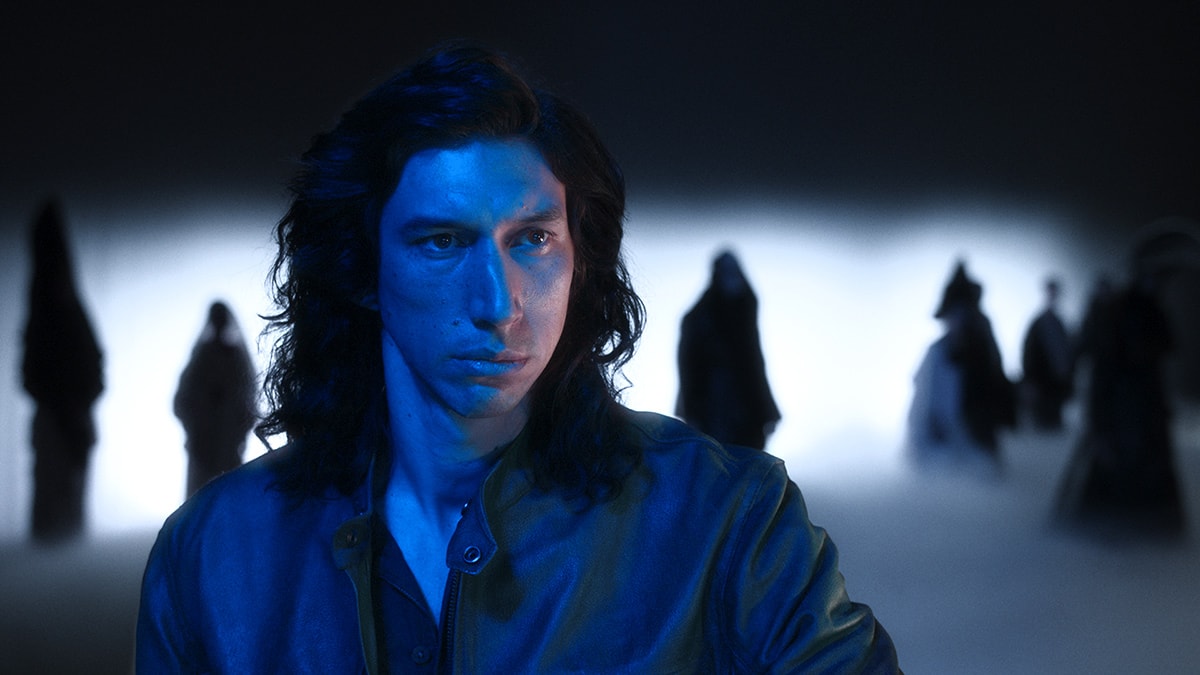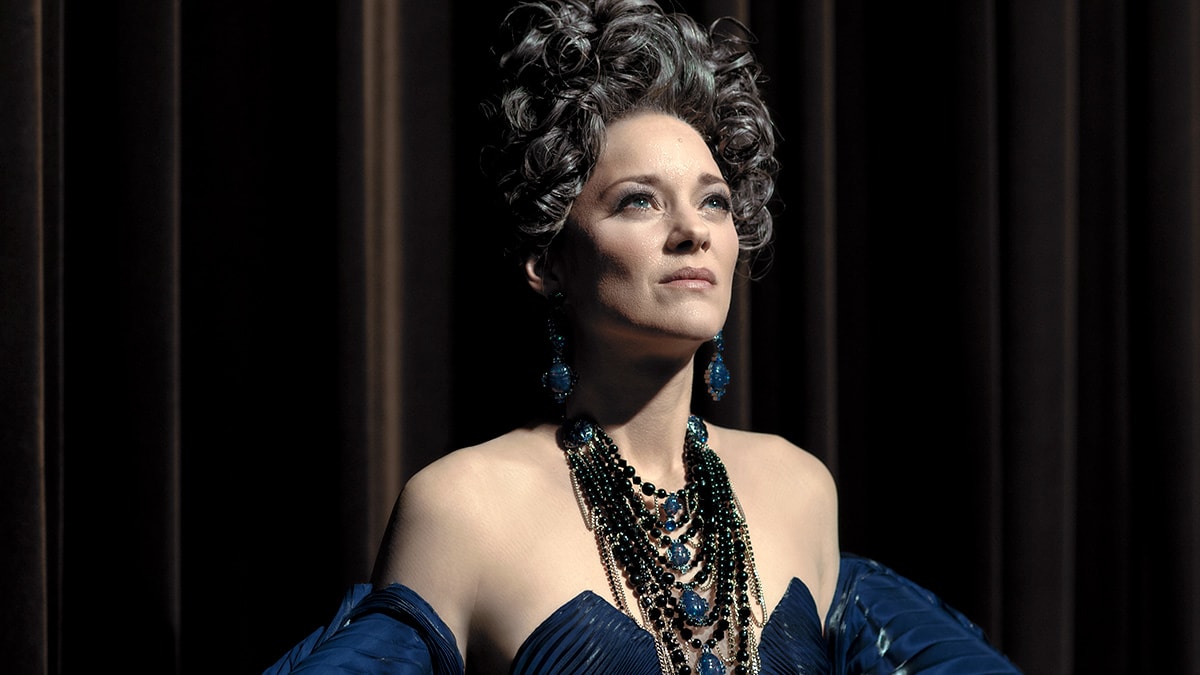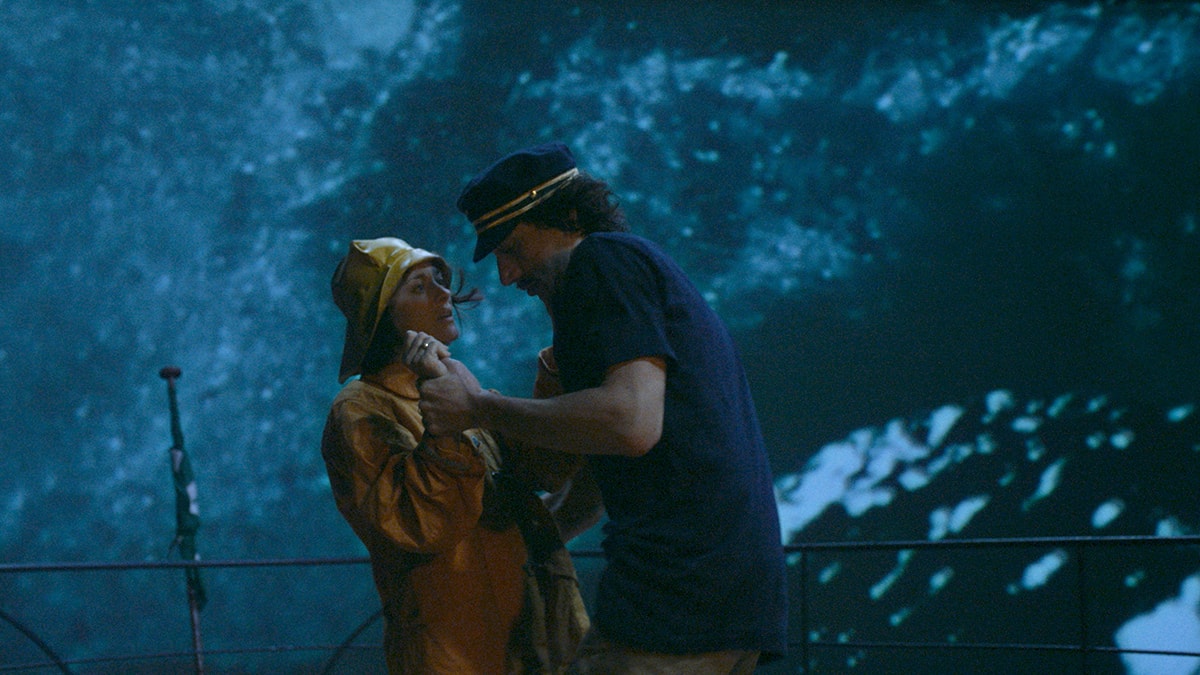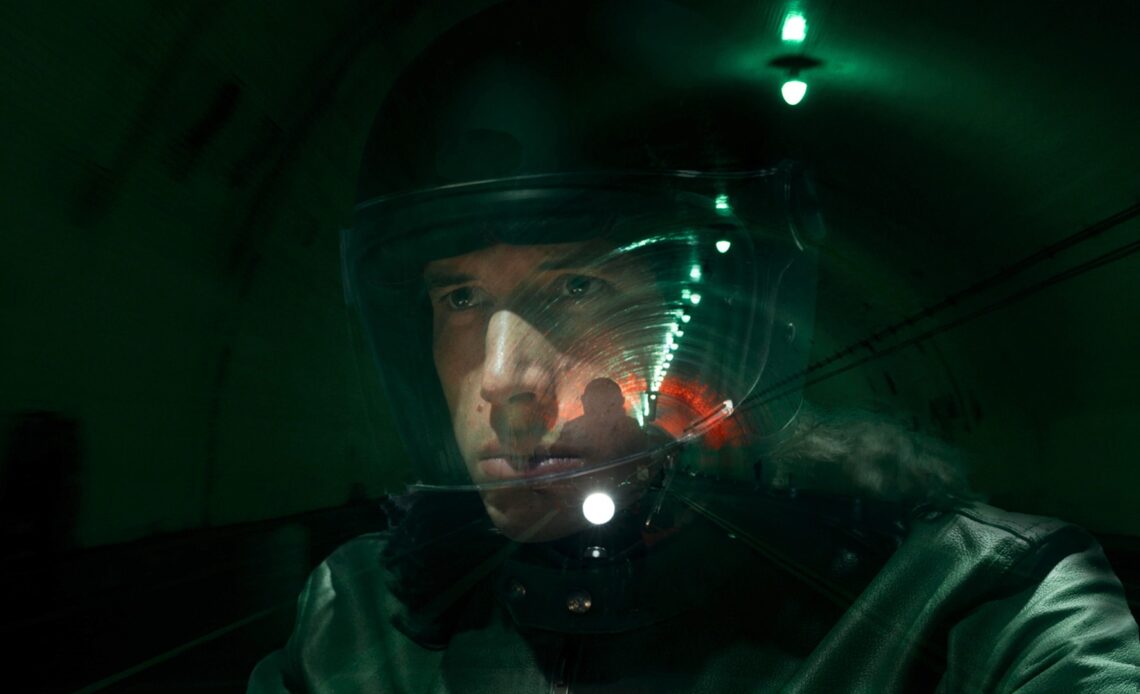After the band Sparks’ two previous failed attempts to make a musical film, first with Italian slapstick actor Jacques Tati, then with Tim Burton, the third time is the charm in French filmmaker Leos Carax’s Annette.
In this surrealist rock opera, Adam Driver plays stand-up comedian Henry McHenry, whose newfound love with soprano Ann Desfranoux (Marion Cotillard) manifests in self-destructive jaundice when her soaring career contrasts with his spluttering failures.
The film begins with the director himself and his real-life daughter asking the band Sparks in a recording studio, “so may we start?”. Ron and Russel Mael then perform the eponymous song with their accompanying band, and as they travail out into the city streets, the cast members (as themselves) perform with them. From the outset, the film deploys this alienation effect that separates the story’s artifice from its creators, thus intending for the film to be interpreted in an ironic way.

Adam Driver’s Henry coins himself as ‘The Ape of God’, parading around the stage like a boxer in little else but a washed-up faded green robe. Driver’s husking and imposing frame creates tension, immediately deriding the artificial audience-performance relationship; “I’m sick of making you laugh, you bore me.”
His paramour Ann is the latest paparazzi obsession, as her elegant operatic performances capture the public’s imagination, as well as juxtapose the combatting persona of Henry. The fact that this couple is in love feels like a strange dichotomy, even through their language when Henry claims “he destroyed” the audience, while Ann’s tenderness is exemplified when she believes she “saved them”.

The film is also punctuated by tabloid news updates with comically bad Photoshop to convey news about the couple and represent obsessive celebrity culture. With explicit sex scenes occupied by musical interludes, the couple consummates their relationship with a baby girl, Annette.
Annette largely functions as a showpiece for the musical talents of Sparks, as almost its entire run-time is sung by its cast, with self-referential and ironic ditty’s written by the band. The birth of the child prodigy provides an impetus for the themes to present themselves, such as the addictive nature of fame, jealousy and ambition, and also to instigate the dreamt-up gothic elements prevalent in Sparks’ work.

The titular baby Annette is a wooden puppet, artfully constructed with gentle hand movements and a face of melancholic longing. In her performances, she hovers above the stage, casting long shadows with gloomy music. Her precocious singing talent culminates in superstardom, exploited by Henry as he succumbs to homicidal instincts to protect her.
The absurd visual style of Carax beautifully matches the quirky inspiration of Sparks as an exuberant and supernatural style is imbued into a melodramatic story. As a film, it perhaps does not stand up to scrutiny, with jarring and disjointed narrative elements. However, seen as a passion project for Sparks and through the context of their previous work, it becomes a more enjoyable experience.
Fun Fact:
The stars of the film, while not trained singers, do most of their own live singing.




COMMENTS